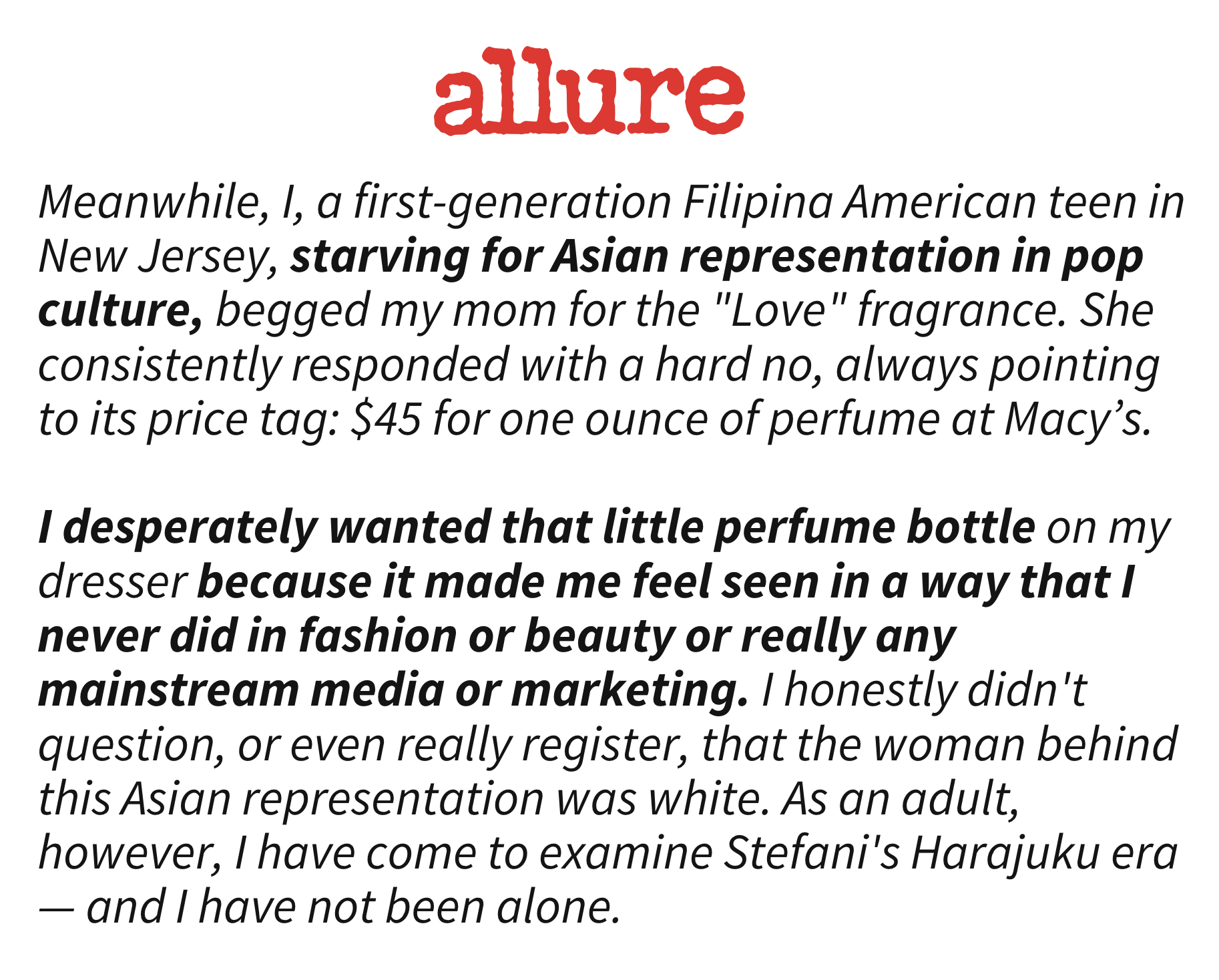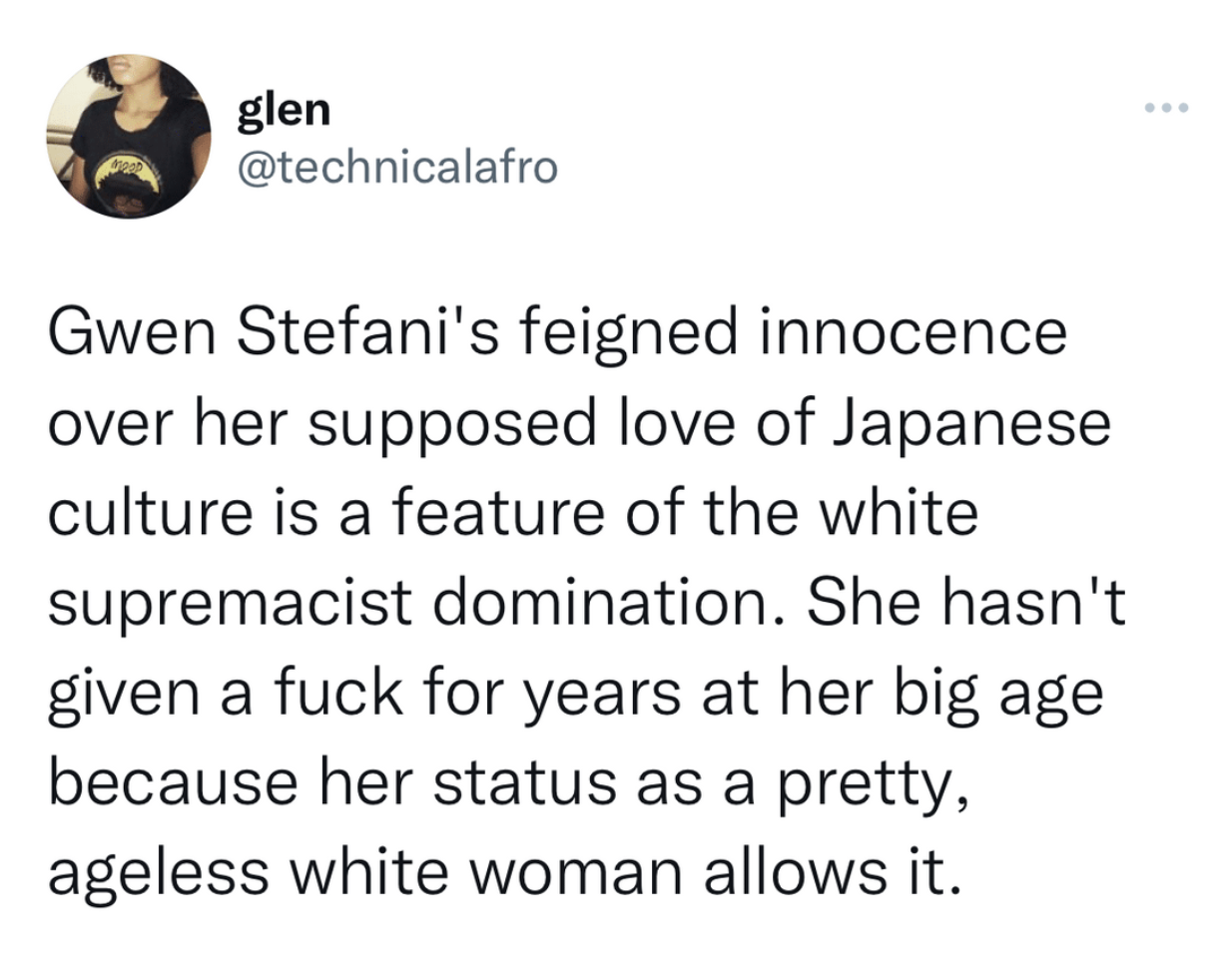Gwen Stefani actually had the caucacity to say "I'm Japanese"
Earlier this week, Jesa Marie Calaor, an Asian-American, interviewed Gwen Stefani about her new makeup line for Allure. During the Interview, Stefani, who has a long history of cultural appropriation, said that she's Japanese - several times.
Many of us from the BIPOC community will remember that Gwen had an Asian—or, more specifically, Harajuku—Era.
But that's just it: it was an era because Stefani isn't Asian. She was able to drop the culture and move on when it was no longer convenient (read: lucrative). But Asians, like Calaor, don't get to shed their identity when it is "no longer convenient."
Asians, like other people of colour, face regular micro aggressions: they hear slurs, and they see and feel judgement and contempt. And Anti-Asian hate rose significantly throughout the pandemic, often resulting in psychological trauma, severe injury and death - but Asians aren't able to choose another identity and shift away from theirs when it's time for a new 'era.'
In fact, people of colour don't get the luxury of speaking up about it either because racialized people constantly risk being labelled "too sensitive," "combative," or "fragile."
And then there is the awful reality that these labels go hand in hand with macro-aggressions: loss of job opportunities, promotions, networking, references, etc., in addition to furthering stereotypes in white people's minds that could prevent them from hiring or working with people like you.
But of course, these are things Gwen Stefani hasn't experienced because (now say it with us, Gwen!) she's a white woman.
So the fact that after her era of Asian-ness, Gwen Stefani doubled down - while looking at Jessa Marie Calaor, an actual AAPI, and said "I'm Japanese" not once, not twice, but several times through the interview.
Stefani has clearly had zero growth since she hired four Asian backup dancers (The Harajuku Girls) to walk behind her and pose - like props - both on stage and in public to promote her album that further appropriates (read: stole) Asian culture. She even renamed the four Asian women after her album as if they were her pets.
It's also important to note that Stefani is a repeat offender, having not just culturally appropriated AAPI culture but south Asian, Black, Hispanic, Indigenous, etc.,
We don't blame you for forgetting this because, in recent years, Gwen Stefani has dropped her "quirky white girl/culturally appropriating" energy and shifted to a more "matured" look of a rich-girl aka a typical white blonde woman of wealth.
Stefani is of European-American background, and made millions off of other cultures in the world, and then
still had the caucacity to look into the the face of an actual Asian-American and say, "I'm Japanese."
The most poignant part of the article, to us at least, is when Calaor talks about Gwen Stefani's first beauty endeavor, Harajuku Lovers, which was shaped in doll caricatures of Stefani and the Harajuku Girls.
(emphasis added)
The Allure article by Calaor, to our absolute delight, goes on to explain what cultural appropriation is - (!!!) #RepresentationMatters!
Dr. Fariha Khan explains that:
Dr. Fariha Khan and Angela Nguyen, who is a therapist who works specifically with the Asian American community, further unpack unequal power dynamics. As Nguyen says,
From the Twitterverse
And shout out to Allure for letting this article come out the way it needed to.













